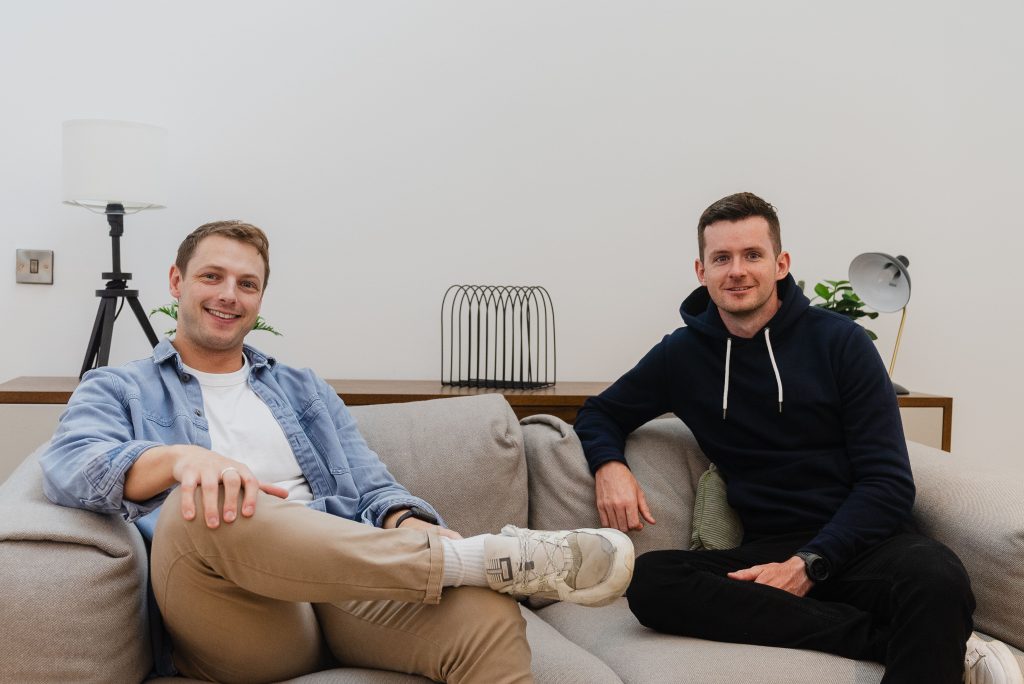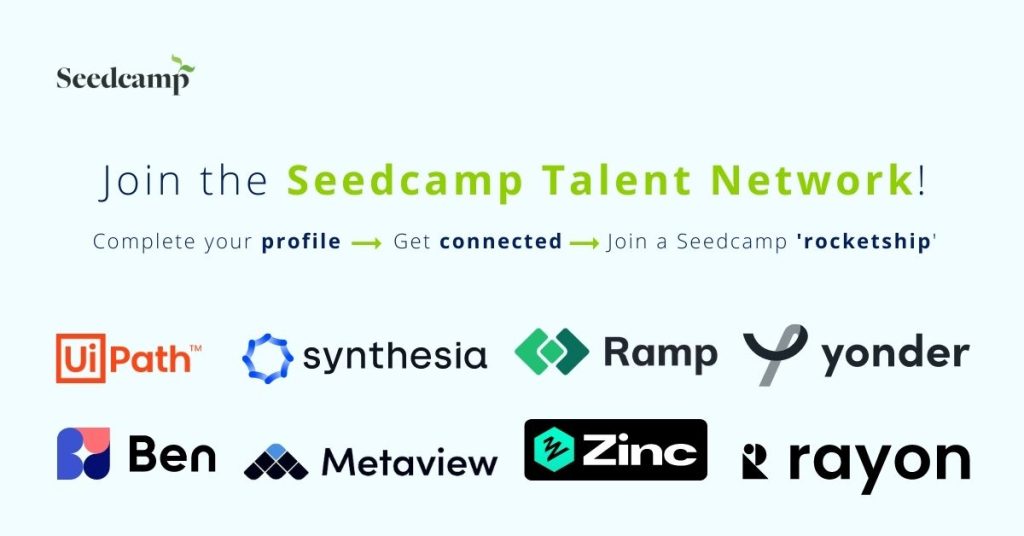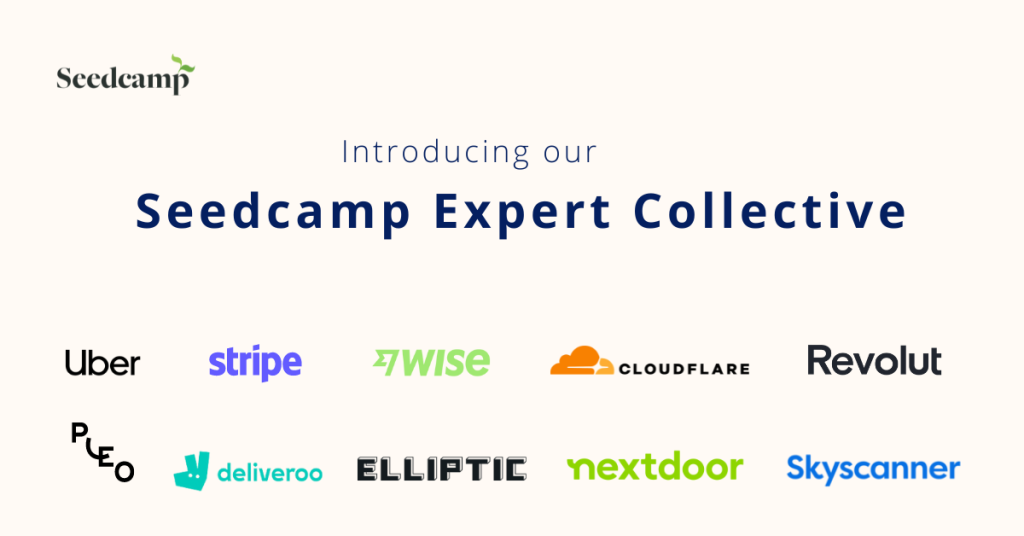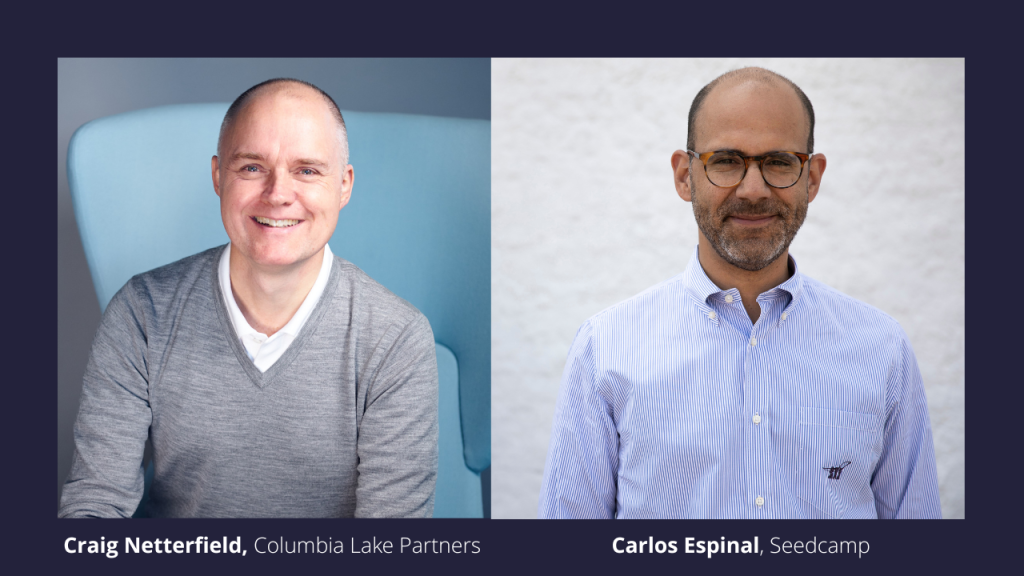Despite significant technological innovation in computational biology and drug development over the past decades, it still takes 10-15 years to take a drug to market, with over 90% failure rate. One of the main bottlenecks lies in the long duration required for the analysis and submission of clinical trial data.
This is why we are excited to back Verisian, a UK-based startup on a mission to increase the rate at which human health improves by redefining clinical trial analysis and drug approvals. It aims to build out the largest medical code repository by parsing and virtualising study code from clinical trials.
Co-founded by experienced technologists Tomás Sabat Stöfsel (CEO, previously COO/Founding Team Member of Vaticle, the creators of the open source database TypeDB) and Henning Kuich (CTO, previously Senior Computational Scientist at Bayer Pharmaceuticals), the company is building products that empower researchers and regulators to analyze and monitor studies transparently in real-time, leading to improved and safer therapies for devastating diseases.
Tomas Sabat Stöfsel, CEO and co-founder of Verisian comments:
“It’s crazy that to this day, after clinical trials finish and the science is done, it still takes months to years before a drug is available to patients. We believe it should be immediate. That’s why we’re building the infrastructure and tools that change how we analyse clinical trials, leading to faster and better drug submissions in the pharmaceutical industry.”
Henning Kuich, CTO and co-founder, adds:
“Clinical trials are and will remain the bottleneck for advancing human health. They are expensive, take a long time, and are absolutely necessary. They alone ensure efficacy and safety of any health-related product. So the rate at which public health improves is directly correlated with the speed and quality of clinical trials and their analysis. This is what Verisian is all about: increasing the rate at which human health improves.”
Oliver Wirtz, Head of Analysis Standards & Reporting Quality, Bayer and a product development partner emphasises:
“The technology Verisian uses is new and revolutionary: parsing study code and leveraging that is exactly the right way to know what really happened in a study.”
Claire Springett, Statistical Programmer, AstraZeneca, another product development partner adds:
“Verisian is exactly what the pharmaceutical industry has been waiting for, easy traceability of programs and CDISC mappings which will streamline clinical trials for the future.”
On why we invested in Verisian, our partner Tom Wilson comments:
“Even with huge advancements in the space and innovations across the value chain, it still takes too long to bring drugs to market. One of the primary bottlenecks is around clinical trials and managing the huge amounts of data required to obtain the necessary regulatory approvals. We see huge potential for Verisian’s platform to improve the speed, clarity, and reliability of clinical data reporting and in so doing accelerate the time it takes to get drugs to market. Tomas and Henning are the perfect founders to be building this with their ideal combination of relevant startup, technical and domain experience and we’re delighted to have the opportunity to partner with them to lead this first round of funding”
We are excited to lead Verisian’s first funding round, alongside Superseed, Recode Health, Magnetic, and angel investors Paul Forster, Will Neale, Endre Sagi, Naud van der Ven, Loic Veillard Garoz, and Sudhamma Lee. With the fresh funding the company is planning to grow their engineering team; build a first version of their “builder”, to enable pharma to program studies ready for submission; and establish and grow their initial design partnerships with tier-1 pharmaceuticals.
For more information, visit verisian.com.
The proliferation of new AI technologies is pushing organisations of all sizes and across industries and verticals to adopt and develop AI solutions at an exponential rate. However, in an expanding regulatory environment and a market climate where consumers believe that organisations should bear responsibility for any misapplication of AI technology, leaders need to prioritise AI governance to fully benefit from the power of AI innovation. Even more so businesses in domains that are inherently risky, such as financial services, healthcare, and insurance, need to understand, manage, and comply with AI-related risks and regulations.
This is why we are excited to back Enzai, a Belfast-based AI governance startup providing organisations with a comprehensive toolkit to navigate these complexities, ensuring the responsible development, deployment, and usage of AI. Coming at a pivotal moment, the company’s mission is to ensure that powerful AI technologies can gain the level of trust necessary to fulfill their true potential.
Founded in 2021 by Ryan Donnelly, a leading lawyer in the AI regulation space, and Jack Carlisle, a software engineer with extensive startup experience, Enzai brings a unique combination of legal, engineering, and data science expertise to build a solution in this area. The team of expert lawyers is tracking AI-focused regulatory developments around the world and responding quickly with new frameworks and features to ensure their customers can stay one step ahead.

Ryan Donnelly, co-founder of Enzai, comments:
“We founded Enzai with a clear vision: to empower organisations to harness the incredible potential of AI, while minimising the risks involved. As AI continues to evolve and permeate every industry, ensuring that it is built and adopted in a responsible, compliant manner has never been more critical. This financing fuels our commitment to enable businesses to innovate in AI with confidence, whilst safeguarding against potential pitfalls, and it paves the way for a future where AI drives both progress and responsibility.”
Enzai enables organisations to build up an inventory of their AI solutions, apply policies and procedures to that AI, and then measure compliance in real-time. “Controls”, the platform’s new feature introduces a new paradigm for building and using AI, allowing cross-functional teams to collaborate and conduct assessments of AI systems.
Jack Carlisle, co-founder of Enza adds:
“(…) we ensure consistency and scalability, enabling organisations of all sizes to manage their AI governance efforts efficiently. It facilitates seamless collaboration between business, legal and technical teams, bridging the gap between domain-specific, regulatory and data science expertise.”
Enzai’s software solution applies across industry verticals, in particular to financial services, healthcare, insurance, HR, and government. Ryan Donnelly emphasises: “anyone that takes their civic and regulatory responsibilities seriously can benefit from AI governance, and our software makes it extremely easy to get going.”
On why we invested in Enzai, our Partner Tom Wilson, comments:
“We are all dealing with this incredibly powerful new wave of AI technologies. At the current rate of development, it is critical that we find ways to harness this development so that it has a positive impact on the world. We’re thrilled to support Enzai as one of the first investments from our new Fund VI. The team behind Enzai have identified a really strong way of managing AI risk, and their tech is set to be a foundational part of the AI ecosystem.”
We are excited to participate in Enzai’s $4 million seed funding round led by Cavalry Ventures, alongside existing pre-seed investor, Techstart Ventures and leading angel investors including Paul Forster (founder of Indeed.com), Sam Gill (co-founder of Seedcamp-backed Sylvera), and Alexandre Berriche (founder of Fleet). Enzai will use the funding to build out its engineering capabilities and support its go-to-market efforts.
Enzai is “in hiring mode”, with open roles across engineering, operations, policy, sales, and marketing. Check them out and apply here.
For more information, visit enz.ai.
Let’s face it: the job application process is broken, especially in the tech startup ecosystem. On the hunt for the ideal role, a candidate has to send tens or even hundreds of personalised applications for individual roles, many of which are not even screened by employers who are flooded with CVs.
Having supported over 470 of our portfolio startups in attracting and retaining high-calibre talent, we know that running a smooth recruitment process is a make-or-break factor in their success. We also know that highly skilled operators, especially in Europe, are in short supply, and their time is precious.
This is why we want to change how talent and fast-growing companies find each other and work together! Over the last few months, our team have been connecting with amazing talent on the job market and are consistently hearing the same story. They’ve applied to an endless number of roles, but they are not hearing back from the vast majority. Not only is this demoralising, it’s also very time consuming.
This was the inspiration behind launching the Seedcamp Talent Network (STN). A way for candidates to turn the tables in their favour, at the same time helping our founding teams identify high quality talent.

The STN is focused on supporting the founders of our earliest stage investments, where the teams are usually below 30 people. These founders are regularly on the lookout for smart, ambitious and hard-working talent to help take their business on the rollercoaster journey towards becoming a unicorn.
The roles within these businesses are usually broad, lack initial clarity, yet offer unparalleled exposure of running the business alongside faster progression than a typical role in tech. There is no better place to deliver tangible and immediate value.
Whether you’re an experienced executive looking to dive back into a start-up, or a graduate keen to explore the entrepreneurial world, we invite you to join the STN. The network is suitable for all levels of seniority, as long as you want to help build something from the very earliest stage.
Applying to the STN takes less than 10 minutes. You will get added to a select collective of talent, all open to work within an early-stage startup. Founders, backed by Seedcamp, get exclusive access to this talent pool and can request introductions to you at the click of a button. You never know, it might help you find your dream job without ever applying! Head over to seedcamp.com/talent for more details.
At Seedcamp, we’ve always taken a network-driven approach to how we view venture, company building, and the magic that can happen when you bring the right people together. Integral to this has been the evolving model of support we, and our network, have provided to our 470+ companies since our inception in 2007.
As the Seedcamp Nation continues to grow – both in size and scale – we understand that access to expertise, top talent, industry knowledge, and strategic connections is what the most exceptional founders are truly looking for. Those who’ve been in the trenches; who’ve learned the hard-won lessons that come with scaling impactful businesses and can help supercharge all aspects of company-building from those earliest days.
To bring our network-driven approach to the next level and support our early-stage founders with access to highly-skilled talent, we are excited to introduce the Seedcamp Expert Collective (SxC), a community of 100 top-quality operators who have scaled some of the world’s most successful businesses, including many from our own portfolio companies such as Revolut, Pleo, UiPath and Wise and from global tech businesses such as Uber, Stripe, Cloudflare, Deliveroo, NextDoor and Skyscanner.

Spanning all functions and stages of company building, from pre-MVP to scale-up, our founders get unique access to this carefully curated collective of experts. Members of the SxC share their first-hand experiences on all things company building and provide support to our community of founders and their teams through one-to-one sessions, workshops, content, and our active micro-communities. In some instances, we also see our experts angel invest or take on roles within companies. There have even been a few who have gone on to found businesses we end up backing!
As soon as founders join the Seedcamp Nation, they get access to our Expert Collective.
What’s more, we also create opportunities for our experts to meet and learn from one another. We know that knowledge exchange and peer networks are valuable at all stages of the journey.
Our Director, Natasha Lytton highlights:
Seedcamp has always been about bringing the best people together and we’re excited to double down on those efforts with the launch of the Seedcamp Expert Collective. We are fortunate to have an incredibly high calibre of people who’ve scaled iconic businesses and want to pay it forward to those earlier in their journey. It’s easy to forget these big businesses had to start somewhere. We see a huge appetite from operators at later stage companies who miss the energy and excitement of the early-stage and love the opportunity to learn and contribute to what the next generation of ambitious founders is building.
Over the coming months, we aim to grow and strengthen the Seedcamp Expert Collective by welcoming new members, including alumni of Europe’s fast-growing companies.
If you are a highly skilled operator and are interested in joining the Seedcamp Expert Collective, we would love to hear from you. Tell us more about yourself here.
In the current surging rates environment, raising capital from VCs or angels has become increasingly expensive for companies, leading many founders to delay raising new rounds or to look for alternative sources of capital as the end of their runways loom.
Venture debt is one source of alternative financing that founders are increasingly turning to. Our Managing Partner Carlos Espinal chatted with Craig Netterfield from European venture debt specialist Columbia Lake Partners about:
– What exactly venture debt is?
– What type of companies venture debt is suitable for?
– How they “operate like a VC, but give loans rather than take equity”.

Carlos: How is venture debt different from traditional banking debt?
Craig: Traditional banks and venture lenders differ in three key areas:
Most traditional banks will only consider assets (real estate, accounts receivable, re-sellable inventory, or machinery) as collateral for a loan. Less traditional banks will also view positive cash flow, even from asset-light companies, as collateral. Most banks will typically not loan to any loss-making companies.
Venture lenders typically lend to a much larger range of companies. This includes companies that are making losses if the cause of the losses is to increase enterprise value, for example, by growing revenues, creating intellectual property, or both.
Banks typically require loanees to keep cash deposits in an account at the lending firm. They also commonly use financial covenants as tools to help them manage the risk of their loans.
Venture lenders won’t use financial covenants to protect their loans. Companies that are considering venture debt need the flexibility to adjust their operations quickly in response to market conditions. In my experience, financial covenants can often incorrectly signal a company is underperforming. These “false positives” cause loan defaults and angst for management and VC shareholders.
Venture lenders also do not require portfolio companies to deposit cash in specific institutions. Firms are free to bank with whomever they choose. The importance of this flexibility was seen most recently with the failure of Silicon Valley Bank, which resulted in many companies’ cash being trapped days before payroll was due.
The traditional credit culture inside banks – which is unlikely to change quickly as it has served them well for hundreds of years – is to price loans within a tight band and control for losses by declining loans they view as risky.
Venture lenders use a wider set of tools in order to control losses and manage risk. These include adjusting the size or duration (repayment profile) of a loan (both upfront and during the loan) and pricing in the risk. This means that venture lenders are willing to provide loans to a wider range of companies than traditional banks, but they do so at a higher cost.
Carlos: What has changed in the last year due to rising interest rates?
Craig: The cost of equity has increased.
The simple “finance math” reason for this is that in a time when interest rates are near zero, the value of $1 today is similar to the value of $1 in one year or even several years. The present value of tomorrow’s dollar is very close to a dollar. But each interest rate increase causes that present value of tomorrow’s dollar to fall.
This means that the value a VC gets from a future company sale (which might happen in 5-10 years) is much lower in our current period of higher interest rates than it was when rates were closer to zero. This reduction in exit value means VCs have to pay less today in order to get a similar return at exit, making “today’s” venture raise more expensive for a company than “tomorrow’s” venture raise.
The operational implication for startups has been a switch from VCs funding today’s growth (which is now more expensive) to preferring to fund growth at some future “tomorrow” date when it is less expensive. This means that high-burn, high-growth companies are out of favour, and also means that high-burn, not-high-growth companies will really struggle to raise new equity rounds from new lead investors.
Venture lenders will often look more closely at growth efficiency within companies and lean more heavily into companies with a strong underlying business that will benefit from delaying fundraising through this current period of uncertainty.
Carlos: How does increasing interest rates alter the relative cost of venture capital vs venture debt?
Craig: Despite the increase in interest rates, venture debt is still a cheaper alternative to venture capital. Venture debt is typically half the cost of venture capital when looking for funding. Even with interest rates on the rise, this is still the case because the pricing impact of reduced present value of that 5-10 year company sale is far greater than the increase of the interest rate charged on a loan.
Carlos: How do the investment priorities differ between venture capital and venture debt funds?
Craig: Even with interest rates rising and the value of rounds dropping, I believe that the investment priorities are the same for both venture debt and venture capital, which is to fund good companies.
At Columbia Lake Partners, we are currently seeing many companies who raised equity in 2021 and 2022 testing the market for additional capital. These companies are now considering debt to help fund them through this difficult equity market and then look to raise a new equity round in late 2024. We are actively deploying capital into those companies with strong underlying metrics (discussed below).
Carlos: What makes a company a good candidate for venture debt today?
Craig: In the current environment, good candidate companies for venture debt often have:
Carlos: From the founder’s perspective, in what scenarios should I be considering venture debt?
Craig: If you believe in your growth story and don’t want to raise a priced equity round in the current environment, venture debt offers a less dilutive way to achieve this growth and provides you with more optionality beyond 2023, when the funding environment has potentially improved.
There are several use cases for debt in this environment, which can help prevent (or reduce the size of) a bridge round or save the use of your VCs’ funding reserves as “just in case” money.
Some companies will also use this environment to buy direct or adjacent competitors or advance R&D through acquisition. A loan can help fund the cash portion of these deals.
You can read more about use cases for debt financing in Columbia Lake Partners’ Knowledge Centre: Knowledge Centre — Columbia Lake Partners | Financing European Growth (clpgrowth.com)
Carlos: How are venture lenders different from other types of debt providers like revenue-based financiers?
Craig: Venture lenders differ in the type of products that they offer and in how the lenders themselves are financed.
At Columbia Lake Partners, specifically, we see ourselves as long-term partners for a company. Our typical loan is for 3-4 years; we have numerous examples of companies who borrowed a small amount from us initially and then grew that loan by as much as 5-10x over time. Our approach is a mix of looking “at the numbers” and qualitative assessment of the management team and the opportunities each company has; One of our portfolio companies referred to our team as being like “VCs who happen to lend” as opposed to “bankers who work with tech companies”.
The last few years have seen a growth in quant-oriented firms offering loans, often based on a percentage of annual recurring revenues. These loans will have a much shorter duration and a higher IRR, albeit with no warrants. A fixed-fee loan repaid over a short period can be expensive on an IRR-basis but helpful for smoothing out working capital fluctuations. Some specialty finance companies also use a quantitative approach while offering longer-duration loans, using leverage so they can offer these loans with no warrant and still generate the returns their VC backers need.
This piece has been edited by our visiting analyst Daniel Inge.
The content of this blog post is solely for informational purposes and may not be construed as legal, tax, investment, financial, or other advice.
Software solutions catering to fast-growing companies’ needs – from payroll to cash flow management – are becoming ubiquitous. However, due to increased exposure to data compliance and cybersecurity risks, the adoption of new tools is lagging, forcing companies to resort to cumbersome manual workflows that restrict their growth.
Many of our portfolio founders have encountered this issue along their company-building journeys. This is why we are excited to back Cakewalk, a Berlin-based SaaS Identity & Access Management for SMBs solution that helps fast-growing companies to regain control over the software applications they use.
Founded in 2022 by a highly experienced and complementary trio formed by Johannes Keienburg, Gil Roeder (ex-Klarna), and Gonzalo Rubio Torrente (ex-Pleo), Cakewalk allows companies to adopt novel applications without loss of control.

The company emerges from stealth today after 12 months of running a closed beta with leading IT and Security teams. Its first product provides an easy-to-use, employee-friendly Access Management solution that enables companies to manage their employees’ access to SaaS applications while keeping their apps compliant and secure. With a design-first approach and highly intuitive UX, it supports both IT & Security teams and employees – the direct users of software applications.
Johannes Keienburg, CEO and Co-Founder of Cakewalk, highlights:
“We are living in an era of rapid software evolution. Cakewalk’s mission is to enable everyone in fast-moving companies to adopt the best software applications. And still stay in control over them.”
On why we invested, our Managing Partner Carlos Espinal, comments:
“Cakewalk’s SaaS Access Management solution solves a real pain for SMBs who are increasingly exposed to cybersecurity risks. With its design-first, employee-friendly approach, the platform enables companies to adopt innovative software solutions while preserving high security and compliance standards. We are excited to back Johannes, Gil, and Gonzalo, a highly experienced team with strong backgrounds in the automation, security, and data compliance space.”
We are excited to participate in Cakewalks’s €3 million funding round, led by Fly Ventures and joined by Possible Ventures and prominent Business Angels.
To successfully navigate today’s uncertain macroeconomic climate, companies of all sizes need real-time visibility and management of their financials and cash flow. Even more so, SMEs, who constitute the backbone of the economy and need to be financially resilient and self-reliant.
This is why we are excited to back Trezy, a Franco-Dutch fintech that provides an AI-driven suite of real-time financial forecasting tools for SMEs. The platform, based on 14 million accounting entries and two million cash transactions, simplifies financial management and supports business owners in overcoming challenges, allowing them to thrive in today’s competitive business landscape.
Founded in 2020 by Quentin Lacointa and Pierre Houdyer, Trezy aims to help 10 million small business owners around the world steer their companies toward success by making automated financial predictions and insights available and understandable regardless of financial literacy.

Currently present in France, the Netherlands, and the UK, Trezy provides real-time financial performance insights, predominantly through smart AI-based classification of bank transactions, receipts, and invoices. Engineered to be a balance of detail and abstraction, combining bank transaction data with accounting data, it provides financial analysis and financial health predictions.
“Smart Forecasts,” Trezy’s predictive tool, allows business owners to automatically project cash flow into the future. The automated onboarding enables new users to see their historical and future cash flows within 30 seconds.
Quentin Lacointa, Co-Founder and CEO at Trezy, emphasizes:
“69% of SME owners say they lose sleep at night because they worry about their cash flow. It’s their number one concern and with good reason. With inflation reducing margins, economic conditions hitting growth and financial processes becoming increasingly complicated there is a huge burden on SMEs. Our goal is to support business owners by giving them easy to access, real time financial insights that will help them to manage their cash flow and, regardless of their financial literacy, make better decisions.
“Accountancy software has really helped with day-to-day admin and compliance, but it doesn’t provide intelligent support for financial decision making. This is where Trezy comes in and with this funding we will be able to further develop our platform to help thousands of SMEs across Europe.”
To further automate the administrative tasks of data analysis and the presentation of insights, and especially to empower business owners to go from business questions to meaningful action more quickly, Trezy is currently working on leveraging generative AI technology.
On why we invested, our Principal Felix Martinez comments:
“Quentin and Pierre’s experiences as bootstrapped founders and operators give them an edge in going to market, which stood out to us. Their cutting-edge technology that automates the enrichment and categorisation of bank transactions sets them apart in the financial management landscape. Bank transactions, being the main source of financial data today, often lack crucial information for actionable insights.”
We are excited to co-lead Trezy’s Seed round of €3 million with Playfair, joined by Kima Ventures and Discovery Ventures.
Trezy plans to use the funding to support the growth of its customer base to 10,000 small businesses by the end of 2024, expand its product offering to include features such as generative-AI-enabled automation, and grow its teams in the Netherlands, France, and the UK.
Copyright © 2019 Seedcamp
Website design × Point Studio